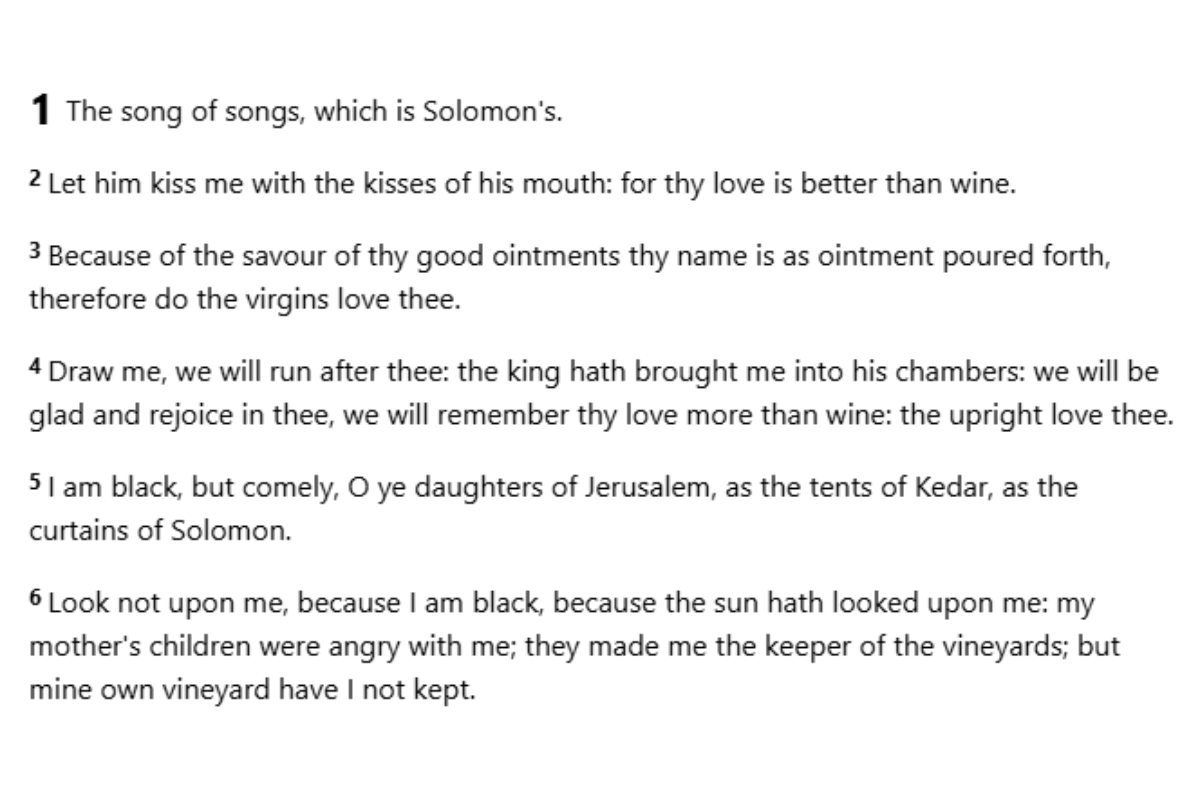Bishop Nathanyel Tells Church Israelites are Black & Gets Exposed!
In a viral clip from a recent visit to Kenya, Bishop Nathanyel, a well-known leader within the Hebrew Israelite movement, boldly claimed that King Solomon described himself as a Black man in the Bible.
Citing Song of Solomon 1:5, he confidently declared that Solomon was “black and comely.”
“I am black, but comely, O ye daughters of Jerusalem, as the tents of Kedar, as the curtains of Solomon.” — Song of Solomon 1:5
According to Bishop Nathanyel, this verse is the smoking gun. He claims that Solomon is speaking here and that most churches intentionally hide this truth.
But does this interpretation actually hold up under Biblical scrutiny?
Let’s take a closer look at the text that reveals a serious misunderstanding—and one that exposes a deeper pattern of misusing Scripture to support dangerous doctrines.
 The Claim: Solomon Confirms He’s Black
The Claim: Solomon Confirms He’s Black
To many unfamiliar with how poetic Scripture works, his claim sounds compelling.
Bishop Nathanyel asserts that Solomon is the speaker in this passage and that this single verse proves that the Israelites were Black.
His further accusation is that churches and Bible publishers have whitewashed history—removing the “color” from Scripture.
Now, let’s be clear. It’s historically true that some depictions of Jesus and Biblical figures were Eurocentric, especially during colonial expansion.
This visual whitewashing has done real harm and has often alienated non-white believers. But that unfortunate reality doesn’t justify twisting Scripture to swing the pendulum in the other direction.
 What’s Actually Happening in Song of Solomon?
What’s Actually Happening in Song of Solomon?
To understand what’s really going on, we need to grasp the nature of the Song of Solomon. It’s not a personal diary. It’s a love poem written by Solomon but told through multiple voices—primarily a woman and her beloved.
Think of Shakespeare’s Romeo and Juliet. Just because Shakespeare wrote it doesn’t mean he personally spoke every line. He created characters—Romeo, Juliet, and others—each with their own voice.
The same literary device is at work in Song of Solomon.
Let’s look at some of the verses leading up to the “I am black” claim:
“Let him kiss me with the kisses of his mouth: for thy love is better than wine.” – Song of Solomon 1:2
“The king hath brought me into his chambers…” – Song of Solomon 1:4
Are we to believe Solomon is referring to himself in the third person, longing for a kiss and speaking of his own chambers?
If so, the text would make Solomon sound like he’s romanticizing himself in a very unkingly—and theologically problematic—way.
Clearly, these are the words of a woman. She is expressing her desire for her beloved and speaking of her experience in his presence.
The “I am black” verse follows this same thread. She is the speaker—not Solomon.
 Why This Misreading Is So Dangerous
Why This Misreading Is So Dangerous
This is where Bishop Nathanyel’s error becomes glaring. By insisting Solomon is the speaker, he inadvertently creates several theological contradictions.
For example, if Solomon is the one saying, “Let him kiss me with the kisses of his mouth,” it implies a same-sex relationship—which contradicts everything we know about Solomon’s life and Biblical teachings.
Moreover, the woman continues in verse 6 to explain why she is dark-skinned: not because of ethnicity, but exposure to the sun.
“Look not upon me, because I am black, because the sun hath looked upon me: my mother’s children were angry with me; they made me the keeper of the vineyards…” – Song of Solomon 1:6
Her darkened skin is connected to outdoor labor and familial rejection—not royal heritage. Interpreting this as a racial identity statement is simply out of context.
 Why Do These Claims Attract So Many?
Why Do These Claims Attract So Many?
Movements like the Hebrew Israelites thrive because they offer a sense of belonging, identity, and historical purpose—especially to marginalized people.
They present an alternative narrative:
“You’re not forgotten. You’re chosen.”
While the desire for identity and purpose is God-given, it becomes dangerous when built on false doctrine. The Bible calls us not just to know Scripture, but to interpret it rightly.
When people misinterpret poetic books like Song of Solomon, they create the illusion of revelation and spread confusion.
And sadly, once emotional appeals draw people in, helping them return to the truth becomes much harder.
If teachings like this have ever caught you off guard, you’re not alone. Many believers have felt shaken simply because they didn’t know how to respond.
That’s why learning Biblical literacy makes such a difference.
God didn’t write the Bible to confuse you. He gave it to reveal His heart and His plan for redemption. When you read it in context, it brings clarity—not chaos. Share on X
By learning to handle the Word accurately, we protect ourselves—and others—from being misled by movements that manipulate Scripture for cultural or political gain.
 Truth Over Hype
Truth Over Hype
Bishop Nathanyel delivered his message with confidence, persuasion, and passion. But he built it on a fundamental misunderstanding.
The clip reminded me how quickly people can twist Scripture when they lack training or choose to ignore context. It strengthened my conviction:
We must study the Word diligently, or we’ll fall for anything that merely “sounds right.”
Bishop Nathanyel’s error isn’t just a theological blunder—it’s a red flag. If someone has to twist poetry into proof-texts to make their argument, they’re building their teaching on sand.
“Therefore whosoever heareth these sayings of mine, and doeth them, I will liken him unto a wise man, which built his house upon a rock.” – Matthew 7:24
If you’re looking for clarity, not confusion, watch this video for a breakdown on how cults misuse verses like this to recruit followers.
You don’t need conspiracy theories or cult teachings to find meaning. God’s truth is enough. God bless.
WATCH THE VIDEO
























Recent Comments